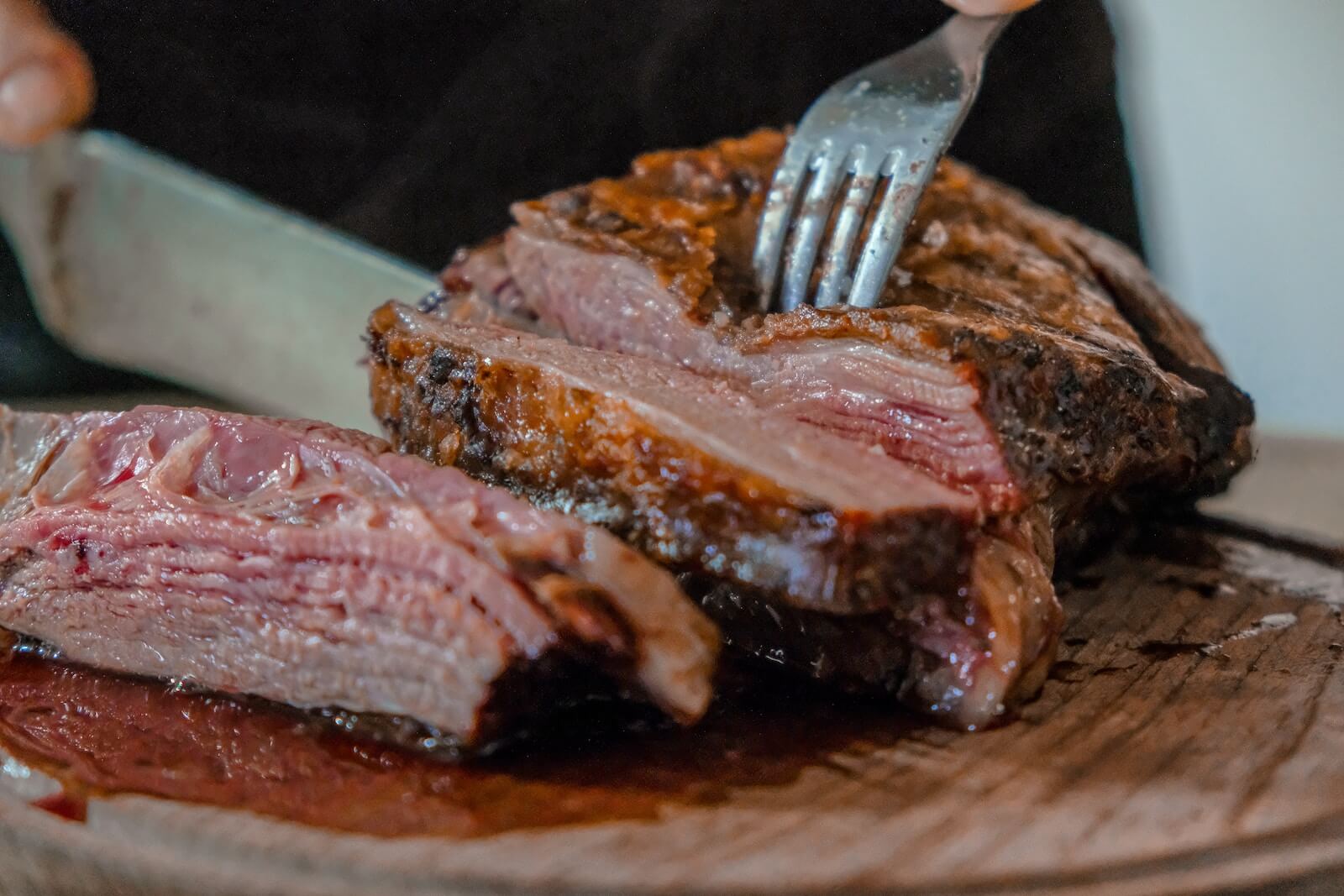NEW ORLEANS — Are you a member of the beef minority? A new report by researchers at Tulane University finds that a shockingly small portion of the United States population is propping up the American meat industry. Scientists found that just 12 percent of Americans are responsible for eating half of all beef consumed each day in the country.
Putting it politely, the research team says that members of this minority are eating a “disproportionate amount” of beef on a daily basis. For instance, the latest edition of the Dietary Guidelines for Americans recommends no more than four ounces daily of meat, poultry, and eggs combined for those consuming a 2,200-calorie diet daily.
So, who’s binging on beef?
Researchers say men between the ages of 50 and 65 are most likely to make up the beef minority. Study authors hope their work can help consumer groups and government agencies alike put together new educational messaging centered on the negative health and environmental impacts of eating beef.
The team analyzed data provided by the CDC’s National Health and Nutrition Examination Survey, which tracked the meals of more than 10,000 adults over a 24-hour period, during this project. The greater global food system is known to emit 17 billion tons of greenhouse gases annually, which is roughly equal to a third of all planet-warming gases produced by humans. Beef, meanwhile, is a major part of those emissions. The beef industry typically produces eight to 10 times more emissions than chicken, and over 50 times more than beans.
“We focused on beef because of its impact on the environment, and because it’s high in saturated fat, which is not good for your health,” says the study’s corresponding and senior author, Diego Rose, a professor and nutrition program director at Tulane University School of Public Health and Tropical Medicine, in a media release.
The researchers’ original goal with this study was to assist in developing new educational programs or awareness campaigns aimed at those eating too much beef. At a time when climate change awareness is higher than ever, they hypothesized that messaging centered on the environmental impact of beef production would be crucial.

Prof. Rose admits he and his fellow researchers were “surprised” to see such a small percentage of Americans responsible for such a large amount of beef consumed. However, he stresses that it’s too early to say if these findings will prove encouraging for sustainability advocates.
“On one hand, if it’s only 12% accounting for half the beef consumption, you could make some big gains if you get those 12% on board,” Prof. Rose explains. “On the other hand, those 12% may be most resistant to change.”
Interestingly, researchers also report that people who were not disproportionate beef consumers were found to be more likely to have already looked up USDA’s MyPlate food guidance system.
“This might indicate that exposure to dietary guidelines can be an effective tool in changing eating behaviors, but it could also be true that those who were aware of healthy or sustainable eating practices were also more likely to be aware of dietary guideline tools,” notes Amelia Willits-Smith, lead author on the paper and a post-doctoral fellow at the University of North Carolina at Chapel Hill.
Beef, of course, can refer to a whole lot of dishes. The study details that for all beef consumed on a given day, almost a third came from cuts of beef such as steak or brisket. However, six of the top 10 sources were actually mixed dishes like burgers, burritos, tacos, meatloaf, or spaghetti with meat sauce. Researchers add that some of those foods represent easy ways for disproportionate beef eaters to cut back on their meat intake.
“If you’re getting a burrito, you could just as easily ask for chicken instead of beef,” Willits-Smith explains.
Regarding age, those younger than 29 and older than 66 were least likely to eat copious amounts of beef. Prof. Rose theorizes this suggests the younger generation may be more climate-conscious.
“There’s hope in the younger generation, because it’s their planet they’re going to inherit,” Rose concludes. “I’ve seen in my classes that they’re interested in diet, how it impacts the environment, and what can they do about it.”
The study is published in the journal Nutrients.


Heart disease will thin them out. And younger generations growing older won’t replace them.